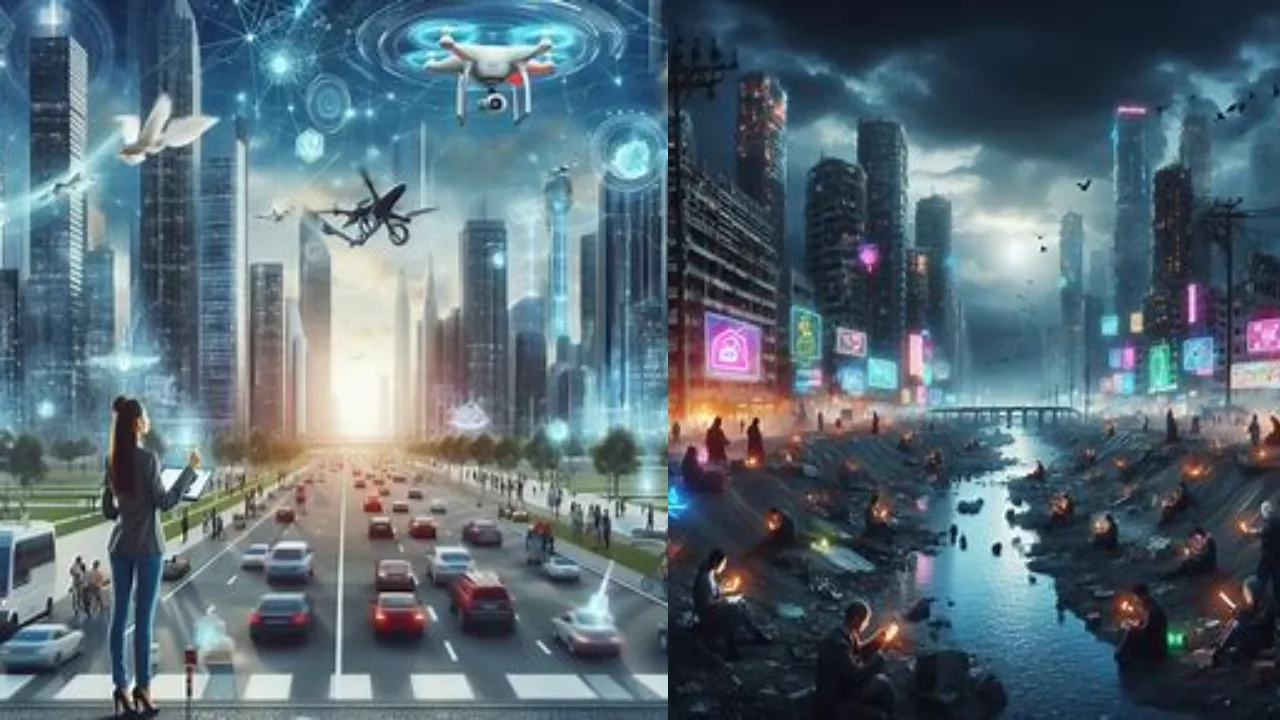What is technology?
Technology is the application of conceptual knowledge for achieving practical goals, especially in a reproducible way. The word technology can also mean the products resulting from such efforts, including both tangible tools such as utensils or machines, and intangible ones such as software.Technology plays a critical role in science, engineering, and everyday life.smartphones, fans, tyres, automobiles, fabric, paper, toothbrushes, power, microwave,Electric vehicles, radio, television, laptop computers, etc. are some of the examples of technologies.
Is technology useful?
By seeping into every aspect of our life, technology has changed the way we behave and operate. From communication and transport to healthcare and connectivity, technology has enhanced our lives for the better. The best part is that it is ever-evolving by facilitating more advanced features as Modern technology boosts productivity as well as the efficiency of human activities, as it allows us to perform tasks in less time. Meanwhile, thanks to the huge amount of information available, better decisions can be made, and human error reduced.Where calculators are used to solve any equations faster and save our time, Cars and other vehicles also saves our time and efforts, Mobile phones helps us to do multiple tasks at the same time from listening songs to texting different people at the same time from different apps and so on.
But it is said that success and failure comes side by side , similarly, achievement and destruction also comes side by side.
Technology can invite these kinds of situations and hamper us.
1. AI ethics and accountability
Artificial Intelligence (AI) is a powerful tool that will transform digital technology due to its ability to process data in new ways and at incredible speeds. This results in higher efficiencies, greater scale, and new opportunities as information is derived from vast unstructured data lakes. But like any tool, it can be used for good or wielded in malicious ways. The greater the power, the more significant the impact.
Weak ethics may not seem worthy of being on the list, but when applied to the massive adoption, empowerment, and diversity of use-cases of AI, the results could be catastrophic. AI will be everywhere. Systems designed or employed without sufficient ethical standards can do tremendous harm, intentionally or unintentionally, at an individual and global scale.
- Social Media Addiction
Social media platforms such as TikTok, Instagram, Twitter, Facebook, Snapchat and others are highly addictive, and YouTube can also be grouped into this category. Every time an individual receives engagement via a “like,” “follow” or “comment” the individual’s brain releases feel-good neurotransmitters, ultimately resulting in wanting more engagement. Social media, like social gaming, can invoke a false sense of social engagement leaving individuals feeling isolated and alone. Endless scrolling of social media feeds, constantly refreshing feeds or binge watching TikTok or YouTube videos also serve as a way to fend of loneliness, fight off boredom and fill other psychological voids. Doomscrolling and a fear of missing out also play a large part in social media addiction. It is also important to note that social media addictions that involve vanity such as posting selifes, using filters, and a hyperfocus on physical appearance of self or others can transcend into other disorders such as body dysmorphia disorder or plastic surgery addiction and other ways of altering one’s physical appearance.
3. eye and ear problems.
Anyone who sits in front of a computer all day long knows how mentally and physically draining it can be. At the end of the day, you might notice your eyes become blurry and have difficulties focusing from constantly staring at a screen.
Listening to music and playing video games doesn’t help our hearing either, because we often listen to things much too loudly. Some studies have even shown that using earbuds can damage the hearing.
4. bullying and sucides
The anonymity provided by the Internet caused a rampant cyberbullying problem as well. It’s easier to say terrible things to someone when you may not be held accountable for your actions.
People are being “catfished”, or lured into relationships with a person pretending to be someone else. Young children and teenagers are especially vulnerable to this type of deceitful behavior. They’re more willing to accept things at face value compared to adults who have more life experience.
5. loss of social skills
As a result, our social skills aren’t as highly developed when compared to those who spend more time out in the world face to face with people. Our abilities to pick up on social cues and body language dwindle which leads to more miscommunication.
This proves that technology can neither be too good nor be too bad for us and it has helped us in many ways but also destroyed us in some ways too.

